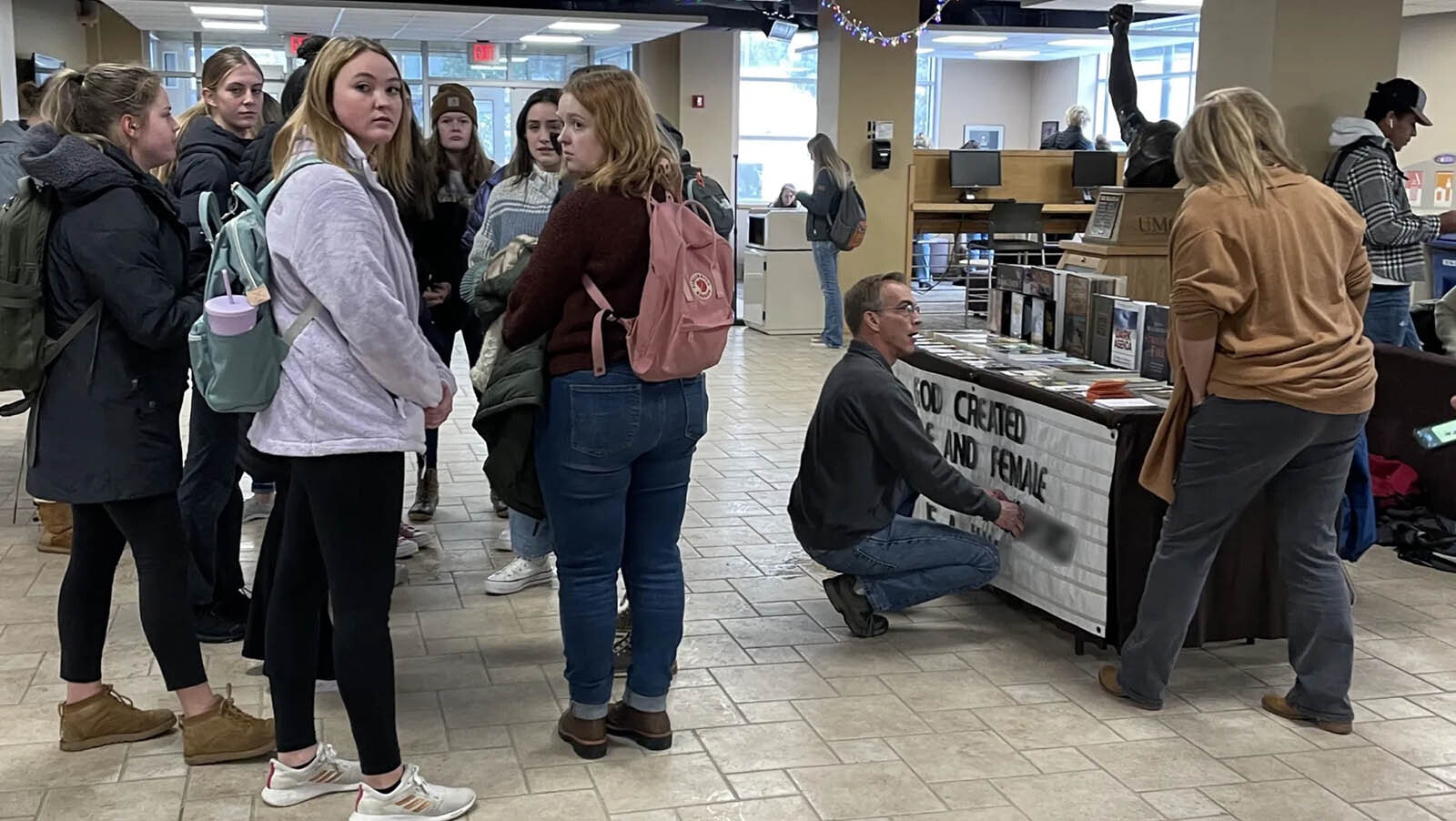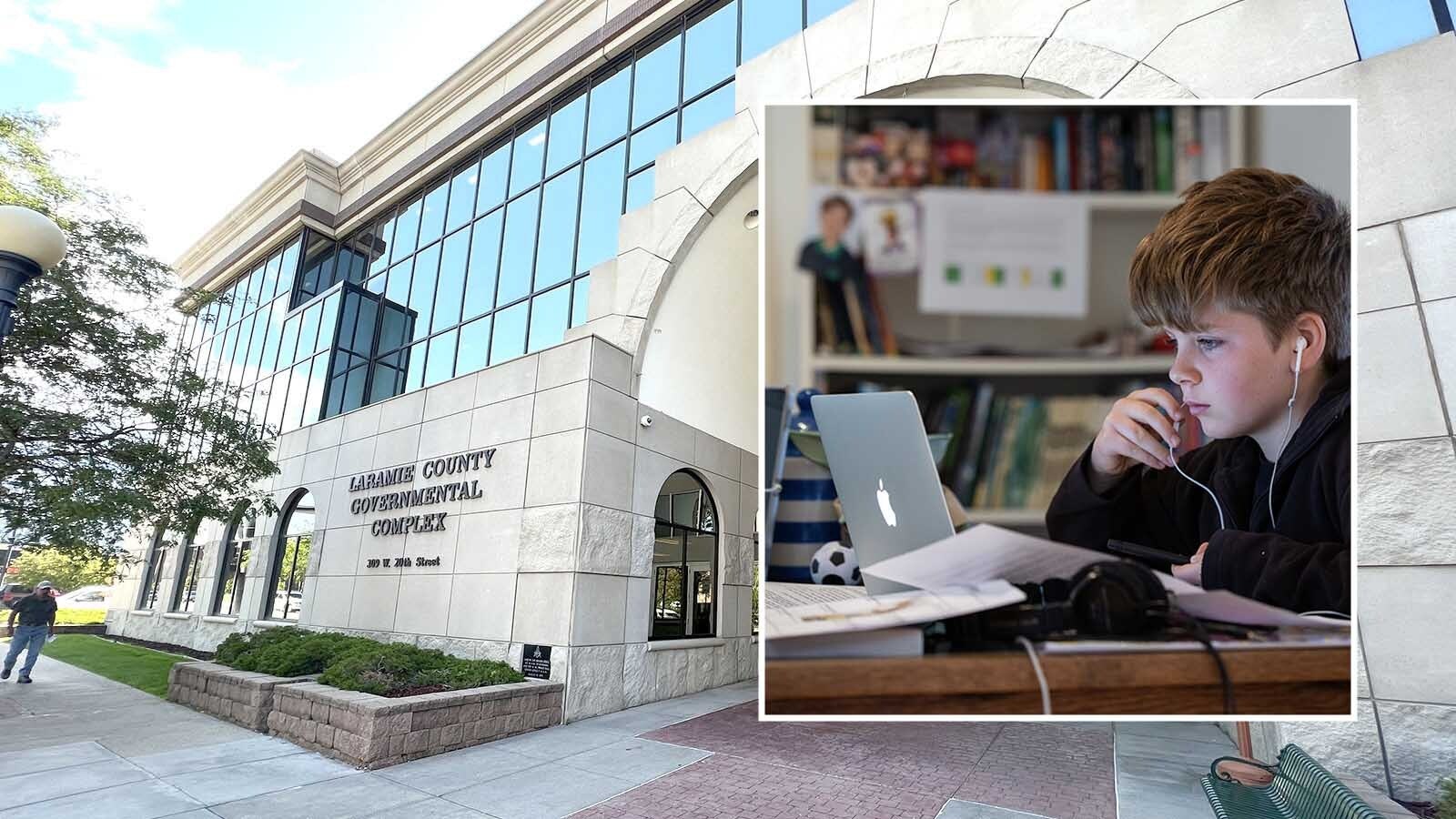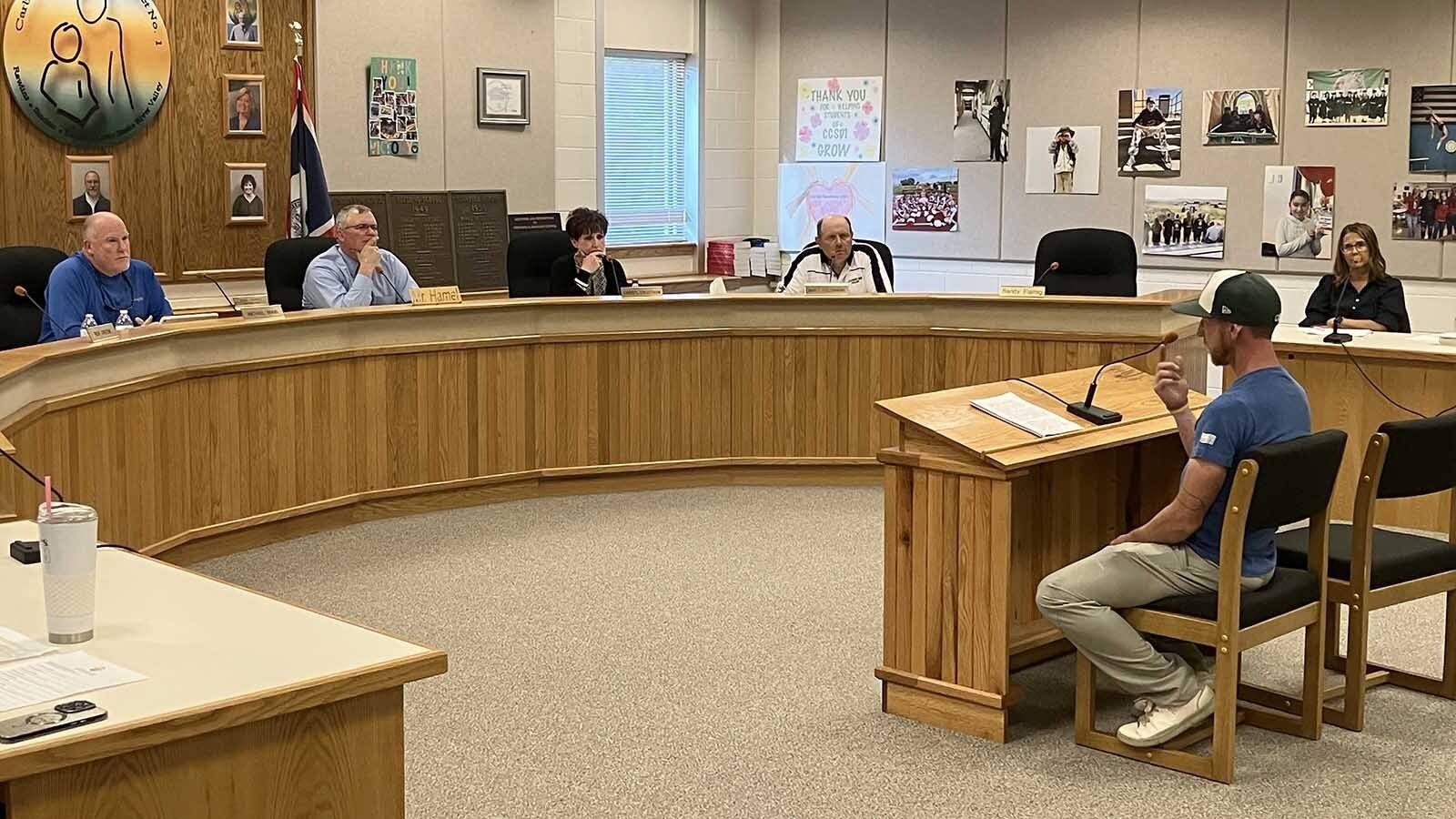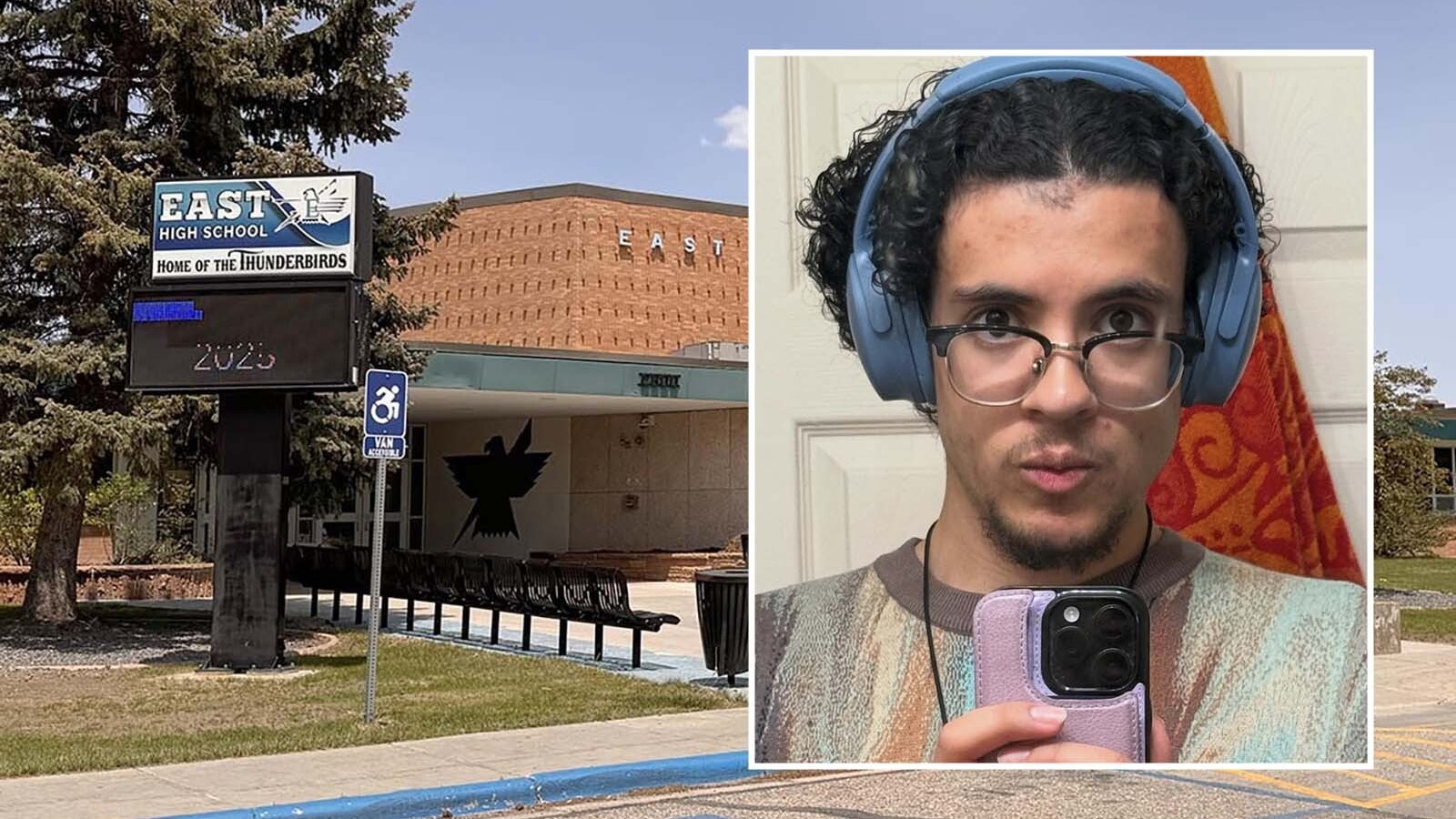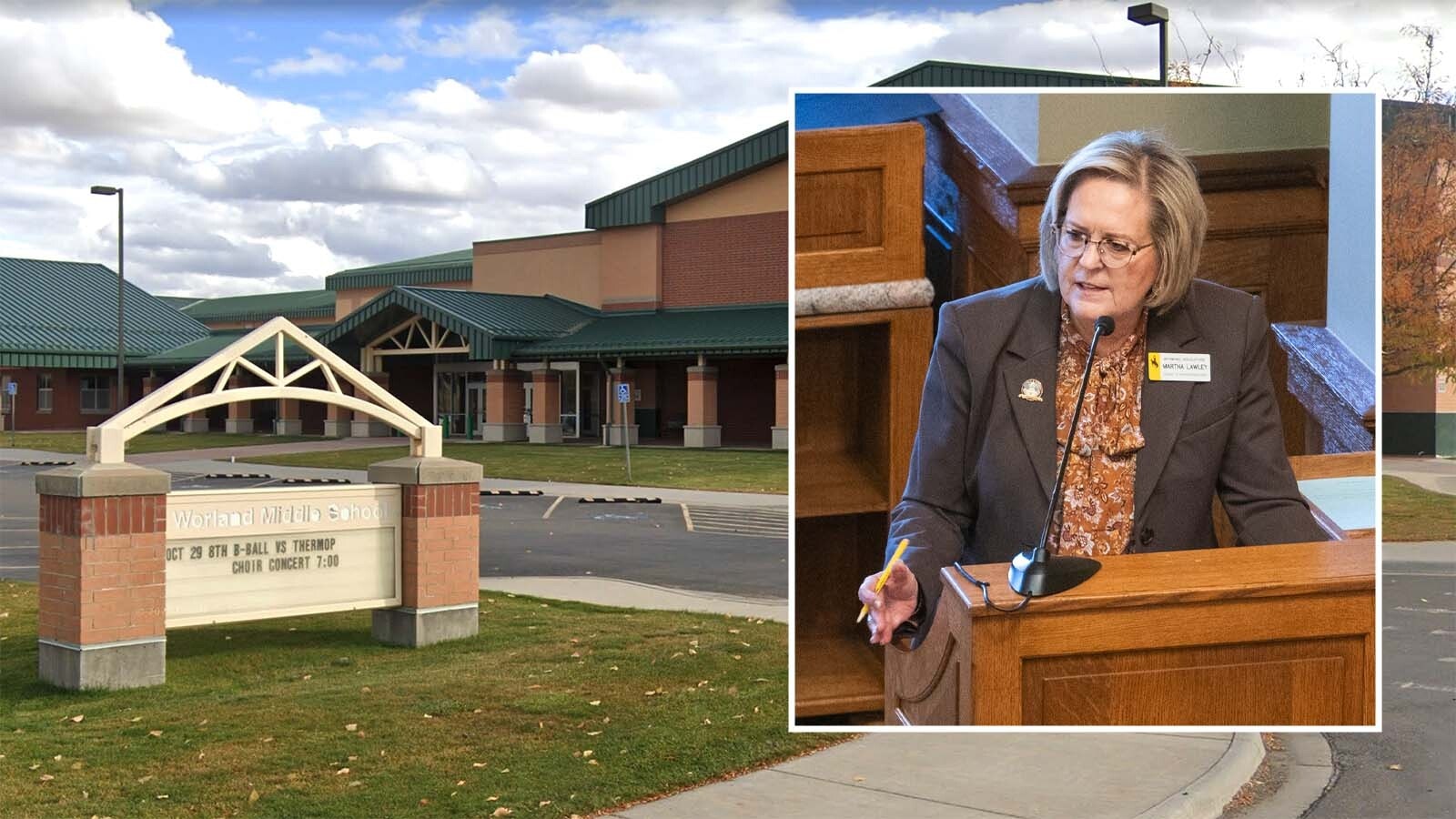The University of Wyoming appears to have violated the free speech right of a church elder who used a sign to call out a transgender student by name this month, according to a nationally recognized First Amendment expert.
Todd Schmidt, of Laramie, displayed a sign from his table in the UW student union Dec. 2 that read, “God created male and female and (student’s name) is a male.”
A UW official asked Schmidt to change the part of the sign displaying the student’s name. Schmidt complied.
Days later, UW suspended Schmidt’s tabling privileges at the union for one year, saying his actions constituted discrimination and harassment against a student in a protected class.
The student Schmidt named is a transgender inductee into a sorority housed on campus. The sorority and the university are separate entities.
Limited Public Forum
The policy UW used to justify its action may not be enough from a First Amendment standpoint, Eugene Volokh, First Amendment professor at the University of California, Los Angeles, told Cowboy State Daily.
The author of the textbook “The First Amendment and Related Statutes,” Volokh specializes in First Amendment law.
Government entities like the university are not constitutionally obligated to allow various kinds of speech within their buildings, Volokh said. However, once the entity decides to hold a public forum, the First Amendment right to free speech then extends to people inside the building, though it may be limited by the entity’s existing policies.
Those policies must be specific and viewpoint neutral, said Volokh, adding that the tabling policy UW referenced in Schmidt’s suspension letter appears too vague to justify suspending his tabling privileges.
‘Indeterminate’
Ryan Dinneen O’Neil, UW Dean of Students, told Schmidt in a Dec. 7 letter that his tabling privileges were being suspended because he used language “targeting a specific student in a protected class.”
The policy states that “language or actions that discriminate or harass the above (protected) groups will not be tolerated,” and that “all individuals tabling, whether UW affiliated or not, are expected to bring their views in a respectful and civil manner.”
Calling out a student by name is not respectful, university leaders have said, writing in a Dec. 5 letter that “an approach of respect and integrity is about calling people into conversation as opposed to calling people out.”
Should Be More Specific
Still, Volokh said, an effective policy in this instance would have prohibited calling students out by name, rather than creating the more ambiguous embargo against disrespectful and uncivil conduct.
“The restriction on tabling in a ‘respectful and civil manner’ is likely to be seen as unconstitutionally vague, and therefore impermissible even in a limited public forum,” said Volokh. “In part because such vagueness makes it so easy for the rules to be enforced in a viewpoint-based way.”
Volokh cited 2018 U.S. Supreme Court Case Minnesota Voters Alliance vs. Mansky, in which the high court struck down a restriction on “political” speech in a polling place.
The Supreme Court majority opinion says “indeterminate” prohibitions carry an opportunity for abuse of power due to the possibility of open-ended interpretation.
Volokh reviewed the rest of the tabling policy, which also limits speech that would conflict with the university’s mission and student policy, and said those additions don’t change his analysis.
“Maybe going forward the university might want to consider such a rule (against calling out students by name),” said Volokh.
UW declined to comment Monday, referring Cowboy State Daily to its prior statements.
Viewpoint Neutral
Besides being specific, policies must be “viewpoint neutral,” Volokh said, meaning policies can’t be used to favor one type of viewpoint expression over another.
“But it sounds like they are specifically focusing on speech that refers to students based on the students’ race, religion, gender identity, etc.,” he continued, “and likely only speech that criticizes the students.”
Volokh said basing speech restrictions on categories like those seem “view-point based,” which is unconstitutional.
“Especially at a public university, the university can’t use harassment rules as a way of trying to evade this requirement of viewpoint neutrality,” he said.
Harassment
To justify the suppression of speech on the grounds of harassment, Volokh said the harassing speech would have to be “something labelled as more severe or pervasive” than Schmidt’s incident.
O’Neil wrote in her letter that Schmidt had had multiple prior verbal warnings.
Schmidt disagreed, telling Cowboy State Daily that, “No, I was never warned to temper my speech.”
Before his suspension, Schmidt had been speaking with university students about Christianity at the union for 17 years.
“I would go to other tables and talk to students, sometimes they were LGBTQ students but they talked to me,” he said. “It was always cordial on my part.”
O’Neil did not return a call for comment by publication time.
Possible Danger
Bruce Moats, Wyoming media law and civil rights attorney, agreed with Volokh’s assessment – mostly.
Moats said he believes the university was justified in asking Schmidt to remove the student’s name from the sign if there were safety concerns about naming the student.
The facts of the case would determine that argument’s outcome if it went to court.
“There was an argument that having the student’s name (up) would result in them being targeted (for violence),” said Moats. “In today’s environment that might win the day in court.”
He clarified that using harassment arguments to “cut off” information still causes him “concern,” however.
‘Discriminatory’
But the yearlong tabling ban likely wouldn’t survive in court if challenged, Moats said.
“I am concerned (the ban) may be viewpoint discriminatory,” he said. “Even though I don’t agree with (Schmidt’s) viewpoint.”
He said that the university, if it were challenged, could argue that Schmidt is still allowed to converse and protest outdoors on campus; just not at a union table.
‘More Speech’
Moats referenced U.S. Supreme Court Justice Louis Brandeis, who believed that “the remedy to be applied is more speech, not enforced silence.”
In his own words, “More speech, and good speech, is the remedy to bad speech,” Moats said.
Moats said he approved of students who debated against Schmidt at the union and who spoke in defense of the student whose name was on the sign. This, he said, is an example of positive counter-expression.
“History has taught us you can’t control the idea by stopping the speech,” said Moats. “It’s not easy, not pleasant often, but I believe in the marketplace of ideas; and you let the ideas go out and compete. And eventually the right idea wins the day.”

